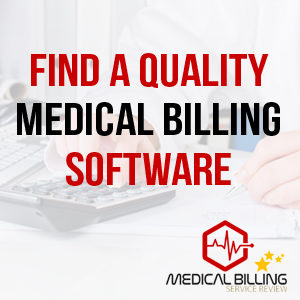
Using Medical Billing Services to Boost Customer Satisfaction
In the landscape of healthcare, patient satisfaction emerges as a pivotal measure of a provider’s success. Beyond the quality of clinical care, the financial interactions patients have with healthcare institutions—specifically, medical billing—play a crucial role in shaping their overall experience. With the complexities of billing codes, insurance claims, and regulatory compliance, navigating the medical billing process can be a significant source of stress for patients. Herein lies the potential of medical billing services to transform a traditionally convoluted process into an opportunity to boost customer satisfaction, enhance transparency, and foster trust between patients and healthcare providers.
The Challenge of Medical Billing in Healthcare
Medical billing, with its labyrinth of codes and regulations, stands as a formidable challenge within the healthcare industry. Patients often find themselves facing unexpected charges, cryptic statements, and a seemingly insurmountable task of dealing with insurance companies. Such issues can lead to frustration and dissatisfaction, undermining the trust patients place in their healthcare providers. The stakes are high, as negative billing experiences can prompt patients to seek care elsewhere, impacting a healthcare provider’s reputation and financial sustainability.
The Role of Medical Billing Services
Medical billing services offer a bridge over these turbulent waters by simplifying billing processes, improving billing accuracy, and enhancing overall transparency. These services specialize in translating the complex language of healthcare billing into clear, patient-friendly formats, helping patients understand their financial responsibilities. Furthermore, their expertise in compliance ensures that billing practices adhere to the latest healthcare laws and regulations, minimizing errors and the risk of non-compliance.

Benefits of Outsourcing Medical Billing
Outsourcing medical billing presents numerous advantages, allowing healthcare providers to redirect their focus towards what matters most: patient care. By alleviating the administrative burden of billing, staff can dedicate more time to patient interaction and support. Moreover, streamlined payment processes facilitated by billing services lead to faster settlements, enhancing the financial health of healthcare institutions and contributing to a smoother cash flow. This reduction in administrative overhead not only optimizes operational efficiency but also creates a more welcoming and less stressful environment for both patients and healthcare staff.
Reducing Administrative Burden
One of the most significant advantages of outsourcing medical billing is the reduction in administrative tasks that often bog down healthcare providers. Medical billing services take on the responsibility of tracking claims, following up on delayed payments, and addressing denials or discrepancies with insurance companies. This shift of duties allows medical staff to focus more on clinical tasks and patient care, ultimately contributing to higher patient satisfaction.
Streamlining Payment Processes
Medical billing services employ sophisticated software and technology to streamline the billing and payment process. By doing so, they can reduce the time it takes for healthcare providers to receive payment for services rendered. This efficiency not only improves the financial stability of healthcare practices but also leads to a more positive billing experience for patients, as issues are resolved swiftly, and payments are processed without unnecessary delays.

Implementing Medical Billing Services: Steps for Success
For healthcare providers looking to harness the benefits of medical billing services, several steps can ensure a successful implementation:
- Evaluate Potential Partners: Look for a billing service with experience in your specific healthcare sector and a track record of success. Consider their technology capabilities, customer service, and the scalability of their services.
- Integration with Healthcare IT Systems: Ensure the billing service can seamlessly integrate with your existing electronic health records (EHR) and practice management systems to maintain continuity and accuracy in patient data.
- Staff Training and Communication: While the billing service will handle most billing tasks, it’s crucial for your staff to understand the new processes and how to communicate effectively with the service provider. This ensures any patient inquiries can be addressed promptly and accurately.
To further enrich this discussion and provide additional value, let’s delve into the evolving landscape of medical billing, the integration of technology in medical billing processes, and the future direction of patient-centered billing practices. Expanding on these topics will not only give our readers a more rounded understanding of the field but also highlight the importance of staying ahead in an ever-changing healthcare environment.
The Evolving Landscape of Medical Billing
The healthcare industry is in a constant state of evolution, driven by technological advancements, regulatory changes, and shifting patient expectations. This dynamic environment has profound implications for medical billing:
- Regulatory Compliance: With healthcare regulations continually changing, staying compliant is a moving target that requires vigilance and expertise. Outsourced medical billing services specialize in keeping up with these changes, ensuring that billing practices meet current standards, thus protecting providers from potential penalties and legal issues.
- Value-Based Care and Billing: As the healthcare industry shifts towards value-based care models, billing processes must adapt to accommodate new billing structures that focus on patient outcomes rather than services rendered. This shift necessitates a deeper understanding of coding and billing for outcome-based services, a domain where professional billing services can offer significant expertise.

Integrating Technology in Medical Billing
Technological innovation plays a pivotal role in transforming medical billing processes, making them more efficient, transparent, and patient-friendly:
- Electronic Health Records (EHR) Integration: Seamless integration between EHR systems and billing processes is crucial for accuracy and efficiency. This integration enables real-time access to patient data, streamlining the billing process and reducing errors.
- Patient Portals and Online Payment Systems: Offering patients access to their billing information through online portals empowers them to understand their financial responsibilities better, check the status of claims, and make payments conveniently. This transparency and ease of use significantly enhance the patient billing experience.
- Artificial Intelligence and Machine Learning: AI and machine learning technologies are beginning to make their mark on medical billing by automating repetitive tasks, predicting billing errors before they occur, and optimizing the revenue cycle. These technologies promise to further reduce errors, cut down on administrative workload, and improve financial outcomes for healthcare providers.
The Future of Patient-Centered Billing Practices
Looking ahead, the future of medical billing is unmistakably patient-centered. This focus necessitates several key considerations and practices:
- Simplifying Billing Communications: Striving for clarity and simplicity in billing statements and communications will help demystify the billing process for patients, reducing confusion and frustration.
- Flexible Payment Options: Offering flexible payment solutions, including payment plans and financial assistance programs, can alleviate the financial burden on patients, fostering goodwill and improving satisfaction.
- Proactive Patient Education: Educating patients about their insurance benefits, the billing process, and available financial resources proactively can prevent billing surprises and empower patients to make informed healthcare decisions.
- Feedback Loops and Continuous Improvement: Implementing mechanisms to gather patient feedback on the billing experience and using this input to drive continuous improvements will be key to maintaining high levels of patient satisfaction.
In the complex landscape of healthcare, where clinical care and administrative tasks intersect, optimizing the medical billing process is not just an operational necessity but a strategic opportunity to enhance patient satisfaction. Outsourcing medical billing to specialized services can transform a traditionally frustrating aspect of healthcare into a positive touchpoint that reinforces patient trust and loyalty. By choosing the right medical billing partner, healthcare providers can ensure their billing processes are not only efficient and compliant but also patient-centered. This commitment to both operational excellence and patient satisfaction lays the groundwork for a thriving healthcare practice, where patients feel valued, and providers can focus on delivering outstanding care.
Author: Mike Cynar
Mike Cynar brings buyers and sellers together by producing reviews and creating non biased webpages allowing users to share their experiences on various products and services. He and his staff write informative articles related to the medical field, legal, and other small business industries.

Leave a Reply